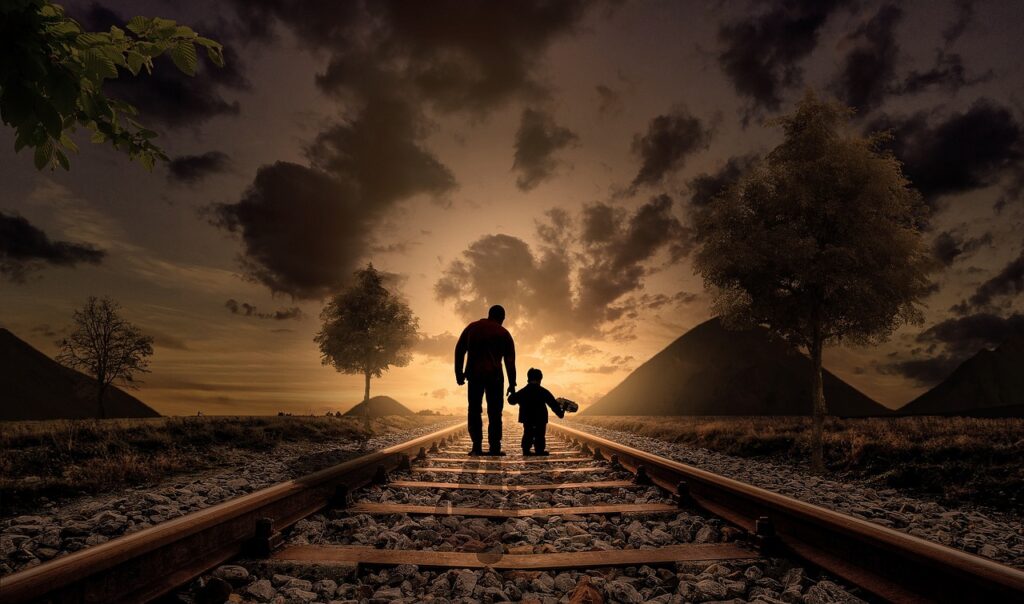Me and Olya met the first time in the most typical Turkish way: in front of a tea.
Her fancy and her zest for life immediately amazed me. Whimsical and eccentric, nothing can steal her broad grin from her mouth. That is also why it was so touching and unusual seeing her crying at the end of our interview, blowing off an existential burden she has never asked to keep.
We recorded our interview in one of my last days in the city. It was a cold night. We were sitting in a Starbucks in the financial district. The sounds of car horns and Turkish songs were our background. For more than one hour Olya kept speaking about her life in Russia while the noise of the social routine was encompassing the heartbreak of her personal drama.
I cannot lie: this the interview I care about the most, for two reasons.
The first one is because I saw the passion and the effort also Olya put into it. She was excited to have the opportunuty of telling her story, what is happening now in Russia to the world. We spent time working on it together and she was eager to check every word could express what she meant.
Finally, because the relationship that was born between me and Olya quickly overcame the one of the mere interview to become an authentic friendship. We spent some wonderful moments together, with the promise of meeting again, despite the borders.
Hello Olya, what is your story?
I can define my young adult life in Russia as “out of politics”. It was pretty ordinary, I used to do professional track and field and my life was basically dedicated to it, until I dropped out of university and started working freelance.
Until my 20s I had neither time nor interest to care about what was happening in the country.
However, I thought of leaving Russia a long before my choice.
I believe leaving the country is a common narrative between young Russians. We all are pretty much upset with government’s policies and political repression
But you know, it used to be more a joke or a form of protest rather than a real commitment. For example, I experienced these feelings, too. I spent almost a year in Montenegro but I was not committed to it actually. I knew I could always go back and that it was not the time for abandoning Russia.
But it was before the war. The invasion accelerated everything.
Even though I was not in danger in Russia, because I’m a woman and I cannot be sent to war, I also could not protest against the war. I had no means to make something better there. So, I decided to protest by departing.
I had to leave and go somewhere else to live, even though it implicated I could have not seen my friends and family for a long time.
How was life after the invasion?
It just felt like an apocalypse. Especially in the first days, when the Russian army was called to succeed, I remember I used to spend my time doomscrolling all the news. Those days were a nightmare for me, the ones with the lowest mood in my life.
It became quickly insufferable to live in Russia: I knew the reality of what was going on but I was unable to do anything. I could not stand such a situation. I was tired and I could not normally function in Russia.
Other people were terribly lost, too. You could see it when you enter public transportation. You could feel everyone was thinking the same, everyone was watching the same YouTube’s politician videos and opposition channels or checking independent media.
And even if they don’t you can empathize with their pain and confusion. Because, you know, probably no-one understood why and how it happened.
Speaking about your family, you told me yours is a difficult relationship. You had different views on politics and you are a member of LGBT community, that they don’t support.
How was your relationship when you were in Russia? How did they react to your decision and how did your relationship change after it?
With my parents it was different. They support the government and they are used to listening to the TV and believing in propaganda.
My mother actually tried to listen to me and at least stopped thinking I was just brainwashed by some sort of Western propaganda. My father, on the other hand, is too closed-minded and to change his mind on anything or even having a neutral conversation on politics is impossible. However, even though my father is eleven years older than my mother, when it comes to LGBTQ+ he is more supportive than my mother is.
In general, ours wasn’t an easy relationship. We used to have fights very often, because I am very passionate about my fights. For example, I remember when I heard my father watching TV programs that were spreading government propaganda, it was really difficult not to react. You know, sometimes I tried to talk to him, sometimes I just made some sarcastic comment
I tried hard to give them some information so that they could have seen my point of view, too. I really thought we could have agreed on something, but it was not the case. It took some time for me to accept it, but that’s it. Now we just know we believe different things.
When I communicated my plans to them, they did not get upset, just asked me a few questions, like when and for where I was leaving. They were aware of my political position and they knew perfectly why I had taken the decision.
Only my grandmother was actually very worried. She is constantly watching TV and started telling me that there would have been a war in Turkey soon, with bombing in all the cities and so it was unsafe to go there. To be honest I have no idea where she got this information, but she looked genuinely worried (she laughs).
I believe my grandma is the most lost cause in our family. She has experienced Leningrad’s siege during World War 2, so she is the most touched by the subject, especially when Putin talks about Nazis or stuff like that. If only she knew we are the bad guys now… she would not accept it.
In the end you know, I always think that war will end, but parents will hopefully remain. They are good people actually; they are only confused.
In the last year, one thing the media stressed the most is how much Ukrainians and Russians are brother people. We understood how having friends or relatives in Ukraine is extremely common for Russian people.
You were not an exception, since your best friend is Ukrainian, although she now lives in Russia. How did you two live through the invasion?
Well, during the night of the invasion she was in Ukraine, or let’s say in the Donetsk Republic, in the village where everything started back in 2014. She kept sending me videos and voice messages from which you could hear explosions. That was terribly scary, and I was frantic with worry.
Probably it’s extremely sad to say, but she got pretty used to the war. So, the situation was quite manageable to her, even though she was scared. She took one of the latest buses that were evacuating from the village. We were both waiting for her to leave.
Later, she told me that her grandparents refused to leave the village and told her not to come back for their funeral, because it would be so dangerous. It was heartbreaking to listen to it.
Nonetheless the situation was also a stimulus for me. When war started, protests exploded in the bigger cities. I immediately took a train and went from my city, Zelenograd, to Moscow. I felt I had no moral right to sit at home while my best friend was under bombing.
Moreover, she is also my colleague and she kept working all the time, so we were joking that nobody had any excuse to slack off, since she was working even being in the middle of a war!
Speaking with other Russian friends here in Istanbul, they all stressed three aspects when it comes to government propaganda.
First, that the traditional media work as a sounding board for official storytelling of the events.
Secondly, the difference between who supports the government and who doesn’t basically represents a generational clash; with younger generations that are less likely to do it, probably also thanks to a better access to new media that tend to be a more independent source of information.
Finally, there is often an exact moment in which you realize what you’re told it’s not what’s actually happening, let’s say you “open your eyes”.
Is it coherent with your experience and how?
Yes, definitely it is.
The main feature of government propaganda is that it is all over TV. There are some channels that used to be independent once and during the time the government has been buying them. However, many people still believe they are free, while in reality they’re controlled by the authorities.
Another big problem is that propaganda creates the illusion of variety of opinions. In Russia’s TV you have different channels with different programs and different speakers. But to a closer look, it is the same point that propaganda wants to make, just being expressed differently. So people think they have access to a variety of sources of information, but in reality it is just one.
My “awakening moment”? It happened when we had parliamentary elections in 2021. Usually, they are not a big deal, but in that year independent candidates weren’t allowed to participate because the government accused them of corruption. It resulted in huge protests all over Russia.
At the time I was already working with my current boss. She is a role model for me. She used to share with me her feelings about the situation and her plans on what to do to help protesters. I started being curious about Russia’s real situation and this opened a new world to me…. A new, amazing world..!
As a consequence, I had to relearn and to re-evaluate the whole Russian history, that was shocking.
Before that, I tried to be as less political as I could. It is a common thing in Russia to think that politics is “dirty” and ordinary people should not be interested in it.
Imagine that in 2018 there were presidential elections in Russia, and I didn’t want to vote but my parents forced me to go and vote for Putin. So yes, I actually voted for Putin once… It is probably the most embarrassing story of my life!
How do you feel looking at the two narrations one next to the other?
It’s upsetting, at least. It’s enraging.
I had to stop watching all these programs at all. I mean, I have never watched them in my life. But even if I would like to watch them, just to have some “insight” of how propaganda works, I could not. It’s insufferable to watch. There is so much hatred, so much dehumanization, so much lies.
They are manipulating for how people speak, for the facts they show, the music they use. They are built to touch one’s emotions and it gets people, especially when they listen to it for decades.
Would you blame the people who are caught by the propaganda?
Honestly speaking, I would not. People are confused.
Many people were raised with the rhetoric of loving their country. They actually don’t want any war nor any people to be killed. But on the other hand, they believe they cannot criticize their country during a war. Because they are supposed to be “patriots” and to “love their motherland”, which also means to go with whatever the government wants to.
They don’t know that you can protest out of love for your country and that you don’t have to sacrifise your beliefs to stay a patriot. An open public discussion would help because they just need to be talked to. But we don’t have that, all the independent media is destroyed.
Moreover, in Russia millions of people are poor. Basically, they just want to survive.
You have to consider that in small towns it’s a common situation to ask for a bank loan even to put some food on the table or to buy school material for children.
In such conditions there is no time, or even just opportunity, to think about politics, to discuss what’s happening far from you or to fact-check what TV says. Because, really, they just want to survive.
So I hate their beliefs but not them as human beings. Most of them are good people who needs compassion and understanding, and they will give you the same in return. They need to be properly educated on the subject, and you’ll see that none of them, excluding a tiny amount of actual radical people, want this war.
Have you ever been to some protests in Russia? How do they work? What happens to protesters?
Yes, I have been to a few of them.
If you go to a protest in an authoritarian country you have to make sure that, in case you get detained, you have all the essentials with you.
You must bring with you some clothes, including underwear, charger, a fake phone (because if police caught you, you might get sued for contents on your mobile), medicines, contact lenses if you use them, period products (because they won’t give you anything there), water and maybe some snacks.
Also, you should have the phone of a human rights organization in Russia that helps detainees to have their rights respected, to get a lawyer in case and in general to get them out of trouble. It’s crucial to have it memorized or written somewhere, many people note them on their arm.
You never go alone to protests, you must go with someone, so that you can look after each other. You have to inform your relatives and friends that in case you don’t text them until a certain hour, they should call a human rights organization and provide them with your personal information: name, phone number and whatever is useful to identify you. They will tell the organization you’re missing and probably detained somewhere, so that they can look for you and provide you a lawyer, if possible.
Plus, you have to dress very “ordinarily” in order to blend with the crowd, so that the police cannot remember your bright red coat and follow you in the streets or the metro after the demonstration.
Once you have respected all these precautions, you can go to a protest.
Most likely the metro stations around the place will be closed, so you have to leave early to go there. Once you have arrived on the site you should make sure everything is fine and calm. Especially, you should check carefully that there are no plainclothes policemen that want to arrest you before the protest.
When you go to the protests you can get beaten up by them, especially if you are in the front. They can break you a bone or you can get detained, they can do anything to you, basically. And you know what? You’d be guilty for that because “you didn’t comply” or “were violent” even if you behaved properly. They feel almighty there.
If you are arrested, you are put on a bus together with other people arrested. Just one person per bus should make a call to a human rights organization, to provide them information on the people detained and on where they will be brought. This way the organization’s phone line won’t get overloaded and more people will get help in time.
The organization will send a lawyer to the police station, who will try to assure your rights to be respected. However, there is no guarantee of that, because they can just deny them the access. Indeed, there are lots of cases of people who were tortured and humiliated there, as you can imagine. You can find more info here https://www.instagram.com/ovdinfo/, it’s the profile of the human rights organization.
So, yes. Let’s say you really want to avoid the police at all costs when you are at a rally.
What do you feel while protesting? Is it more a cheerful or a sad moment?
You have to consider that in Russia the government doesn’t want people to unite. You can see it everywhere.
For example, NGOs are forced to close, but not only the ones who are related to politics, also those who are not involved in politics in any way. Because they can unite people and let them create something together.
Every situation in which people gather is considered to be potentially dangerous. The goal is to atomize people, to let them be distant from one another.
Then protesting was a cheerful moment. There you used to meet people similar to you and you had the opportunity to talk to them. I mean, it didn’t feel like a holiday or celebration, obviously. But seeing people from all the generations gathering to express their dissent gives you some feeling of belonging, of power even.
You thought you were not alone, and you could really change something.
But it was before the war. Now it’s not that joyful anymore.
During the protests on the first day of war, it felt like a big funeral. We were devastated and confused. We had just lost our hope.
The scene was apocalyptic. It got dark early in the afternoon and was very cold. People came to the protest silently. Policemen from special forces were waiting for us, in safe helmets and full vests. We were shouting “no war” and so on. But it felt so pointless. It felt like there was nothing you could make anymore. As we finally realized we cannot influence anything. We cannot get to say anything. We cannot get to change anything… for now.
Let’s try to turn a little bit more “political” for a moment. What is your opinion about Western sanctions? Also, what might be the common thought in Russia?
I’m not qualified for analyzing them, obviously. I can talk about my feelings related to them, however.
I can only say it was though, from my point of view. Not just because our cards were abruptly cut out from the Swift system and stopped working abroad or because multinationals stopped working in Russia, but also due to certain narratives that started circulating in Europe.
There was a sense of abandonment among people. We were left alone with our dictator. Some people started to say that “Russians are evil” or that “all the Russian citizens are guilty”. Instead of getting helped as the victims of abuse, we are just getting all the blame.
Let’s put it like that: nor am I wanted in my country anymore, because I don’t support the government, nor I am not wanted abroad, because I am Russian. Where should I go?
People started thinking that Western hates us. It was exactly what Putin’s propaganda has been trying to achieve through the last two decades, unsuccessfully. And it was achieved in two weeks. Obviously, I am not talking about Ukrainian people.. I am talking about people from other countries.
I’d like to talk with you about the “power of words”. First of all, what is freedom for you?
Freedom for me is being able to do what you want and go wherever you want and, most of all, to have the opportunity to agree with yourself. When I talk with other Europeans, they see freedom as something ordinary. For us it is not.
Do you feel free now that you fled?
No, I don’t.
I was not free in Russia, even though I was not in jail or whatever, because I could not agree with myself living there and that’s why I chose to leave.
But I am not free now, either. Because freedom also means to have the chance of feeling safe and welcome in my home country. While now I have to fight for bare minimum things. I’m not talking about food and water, luckily. But I have to make an effort to feel safe, or at least kind of stable.
I still hope I’ll have the possibility of going back to Russia in the future. But I feel like for the next decades I have to find a new place to settle down.
At the moment, I’m just living on my suitcase. People sometimes call me a “digital nomad”. But no, I’m not! Being a digital nomad would be very cool if you can go home at some point. In a home that feels like yours. In a home that is safe.
Keeping on the subject of the importance of the words. Do you consider yourself as a “citizen of a country in a war”? And would you define what’s happening as the “war of Putin” or the “war of Russia”?
Not only do I totally feel as a citizen of a country in a war, I especially feel as the citizen of the country that oppresses and which started this war.
I have this feeling because obviously I see what’s happening and that what’s happening is not right. Also, I feel it in day-to-day life: I cannot get a visa, I can’t use my bank card, I can’t save my money digitally in Russian banks in any currencies but ruble.
And of course, it is the war of Putin! He’s the only one who benefits from it and who needs it. We, as Russians, did not want this war. We just wanted to live peacefully and do good things for our own country.
How do you imagine your future now?
I want to move to Europe and hopefully get a residence permit. And maybe when Putin goes away and Russia comes back to normal, I might be able to live there again, or maybe in two countries.
Imagine you could send a message to Europe. What would it be?
I would say that we are your allies. Don’t trust neither the polls nor Russian propaganda. We are not blood-thirsty monsters. We are against Putin.
Please, support Russians and encourage them to hold on and fight against the regime. Our Russia isn’t Putin, he’s not what real Russia is. When you think of modern Russia, think of people like Alexey Navalny, Maxim Kats or Dmitri Muratov. Our Russia is being held in prison, tortured or exiled, but still staying strong and doing their best to make a change. So please, support us in our fight with our dictator.
Because we are actually pretty cool. And we could definitely use some help.
Interview by Alessandro Ceschel



